Reality shows are an odd beast. What started off as cheap, easy to make TV designed to fill large gaps in the schedules, usually in the form of Big Brother-style internment simulators, have grown to dominate the airwaves. Often imported from mainland Europe, reality TV in its purest form seemed to peak in the mid to late 2000s, with Big Brother in full swing, I’m A Celebrity Get Me Out Of Here rivalling it for prominence, and the first glimpse of a certain Armenian-American family poking their heads out of the conceptual womb in 2007.
Since that happy time, reality TV has become increasingly susceptible to the laws of diminishing returns. Elimination-style contests in particular have been forced to deviate from purely traditional singing competitions such as The X Factor to testing a raft of human skills, from sewing to masonry, in a range of outlandish set-ups as TV producers search for new ways to spice up the format by widening the net to the point of absurdity.
For this list, we’ll be looking at some of the most ludicrous, offensive and downright arbitrary concepts for so-called ‘elimination’ shows. It isn’t just ‘talent’ contests which we’ll be perusing, but also dating shows and so-called ‘scripted-reality’ TV, essentially anything where contestants are voted off on a periodic basis. There’s no specific criteria nation-wise, but most shows are usually referred to in their US or UK formats.
1. West End Role Searches
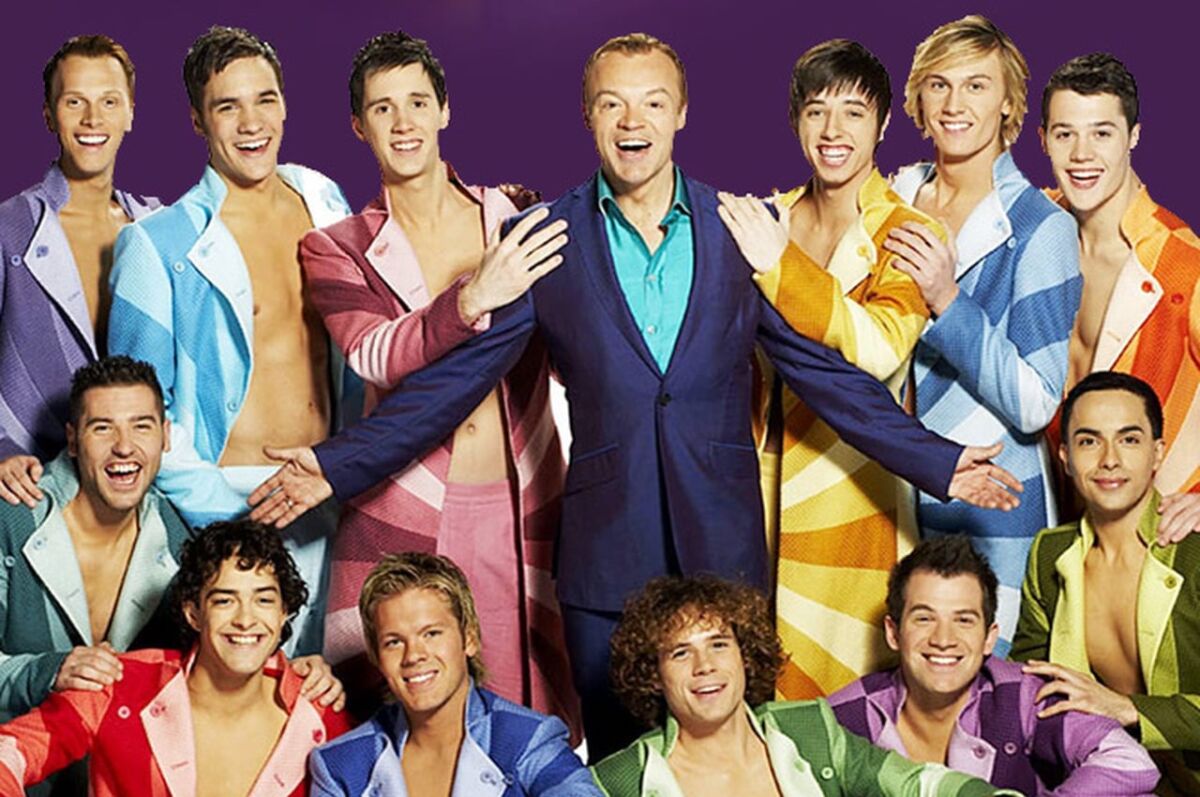
I’m not quite sure what happened in the late noughties to make UK TV execs suddenly take complete leave of their senses. Maybe lead got into the water supply around Television Centre and altered some already questionable brain chemistries. Whatever the reason, the period saw a weirdly unerring string of ‘talent search’ elimination shows looking to dig out the lead roles for a string of West End musicals, most of which were owned and penned by ghoulish empresario Andrew Lloyd Webber.
First, there was How Do You Solve a Problem Like Maria?, the BBC’s 2006 docu-talent search jumble designed to uncover the newest iteration of Maria Von Trapp for the Sound of Music. Then there was Any Dream Will Do a year later, which sought the new Joseph for Lloyd Webster’s God-bothering psychodrama Joseph and the Amazing Technicolour Dreamcoat, going up against ITV’s more low-rent competitor in the form of Grease is the Word, before 2008 spluttered I’d Do Anything up from the bottom of the conceptual barrel. The trend seemed to have petered out at this miserable nadir, before ITV tried to resurrect it (pun intended) with Superstar, the quest to find the new lead for Jesus Christ Superstar.
Every show is much of a muchness, practically indistinguishable from its predecessor apart from the actual songs, so it’s easy to make sweeping criticisms of all or one, from their naff production values to some of the humiliating ordals the contestants are put through for no good reason (such as making the wannabe-Josephs perform in their pants in front of their parents). I’ve always had a particular problem with Oliver-based I’d Do Anything, though, because any elimination show bearing such a title can’t help but have a slightly sinister undertone, and puts me in mind of sleazy, Weinstein-esque directors leering towards would-be Nancy’s in a back-stage auditioning room: ‘I’d do anything to get this role’, ‘Oh really? Anything?’. Ugh.
2. Paris Hilton’s My New BFF / Paris Hilton’s British Best Friend
I don’t know about you, but I always find that the most efficient and genuine method of selection when choosing a new best friend is to set up an elimination show and then force candidates to perform a series of arbitrary tasks, from hosting a fake fashion show to riding on a rollercoaster while posing for photos, in order to win my prized affection. It’s just easier that way.
That was the ludicrous format for Paris Hilton’s My New BFF, an almost unfeasibly downmarket reality saga in which the airheaded socialite whittled down her new bezzie from the media dregs who had presumably slept in for the Flavor of Love auditions and were forced to go next door and try to infiltrate Paris’ inner circle instead. ‘Oh, Paris Hilton? Yeah, I love her. Dogs and hotels, right? How much are you paying?’
Unsurprisingly, the UK version, Paris Hilton’s British Best Friend, was too self-consciously trashy and stupid even for ITV2 viewers and was cancelled after just a single series, meaning that it now remains unclear as to how America’s second favourite heiress stands any chance of finding a long-term soulmate in the cruel wasteland that is the real world.
3. Bromans
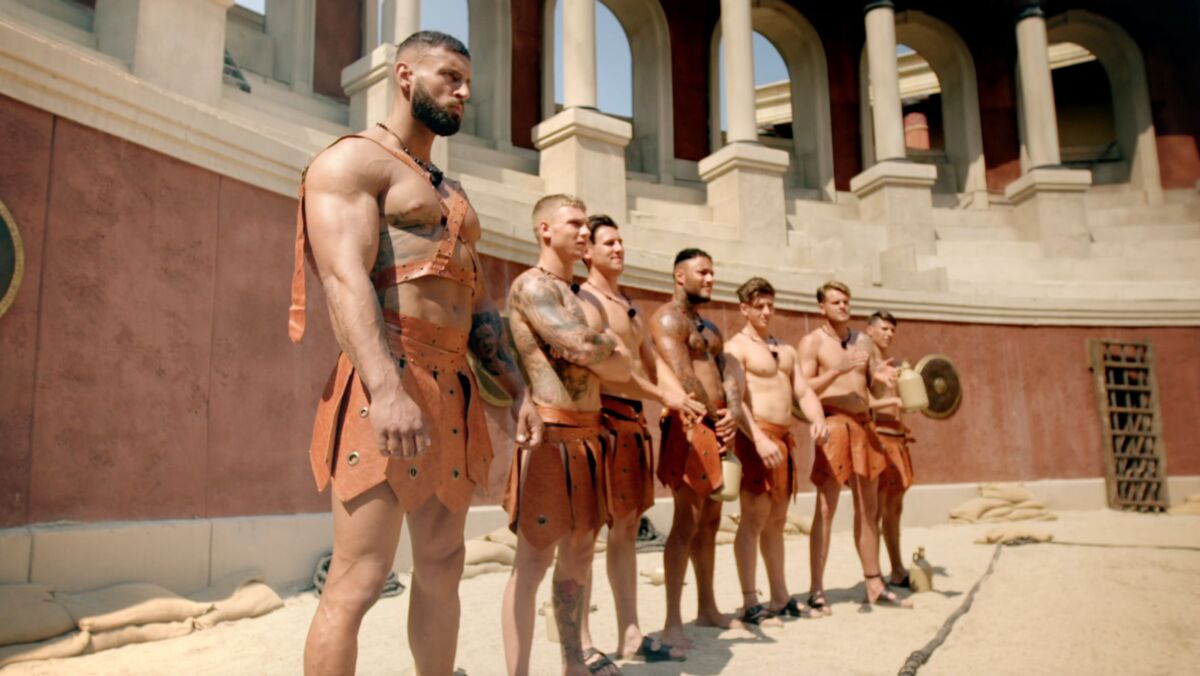
Ah, ITV2, where would I be without your channel’s endless parade of meat-headed slabs of ham and large-chested simpletons to ridicule. You, ITV2, are the gift that keeps on giving.
If you’re not aware of Bromans, the show mainly revolved around hunky contestants competing in faux-Roman gladiatorial challenges and training, although to what end remains bafflingly opaque. It’s all the fun of the Roman Empire without the forced slavery, religious persecution, and unrepentant Christians getting ripped in half by slavering tigers – although if the poor souls subjected to the barbarity of the arena had resembled any of the cast of Bromans, you might not have felt so bad siding with the Empire. In all honesty, the show could’ve been set anywhere and in any time, the faux-Roman background merely an excuse to see some very large men in would-be gladiatorial equipment tussle in the hot sand as ever bigger men shout at them in confusingly anachronistic regional accents.
Bromans may have also included a cast of female Romans (‘Wo-mans’?), but the show seemed more interested in revelling in a strong undercurrent of blatant male homoeroticism, as Britain’s most unfathomably muscular competitors were forced to train with one another, be chained together or grapple in sparkly loin clothes in the sand for the pleasure of Emperor Martin Kemp. It was like a party at Elton John’s house.
The really odd thing about Bromans is that it’s genuinely quite an enjoyable watch, a show so open in its fetishisation of the male physique and its homoerotic undertones that you’re almost forced into a weird, begrudging respect for it. While contestants on Love Island seemingly do nothing but shag and lie in the sun, the ‘Bromans’ have to sweat, scrape and toil for their 15 minutes. If nothing else, the show felt comfortable with its depictions of male fraternal bonding without ever feeling prudish or homophobic, and often used that as its main focus rather than just the usual bloke-shags-bird format favoured by so many other programmes of its ilk. Maybe Bromans was the progressive gladiatorial combat-based scripted elimination show none of us realised we needed.
4. Daisy of Love
I was perfectly willing to accept VH1’s elimination-style dating reality thingamy Rock of Love. Yes, it’s odd for any woman to really idolise Poison frontman Bret Michaels as though he were the second coming of Christ wearing a stetson and boot-cuts, but in the reality TV world it actually worked rather well. The semi-famous rocker’s insatiable sexual appetite and his taste for women who all looked like silicon-enhanced approximations of a Barbie doll roleplaying as Billy Ray Cyrus might have made the show trashy, but you couldn’t deny that Rock of Love was weirdly good television.
The show was remarkable for a host of reasons, namely that it was like a parallel universe where everyone shopped at Hot Topic and breast implants were given out by the state, but at least it being fronted by someone half-talented and famous enough to be desirable made a degree of sense. What didn’t make even a hint of sense were the show’s spin-offs (yes, there was more than one!), including the imaginatively-titled Daisy of Love, featuring Season 2’s runner up Daisy de la Hoya fronting her own dating elimination show, which represented a sequence of events that can only be seen as verifiable proof that humanity can, and will, always stoop lower. Rather disappointingly, however, a show in which the winner of Daisy Love fronted his own dating reality show wasn’t picked up by VH1, and that particular cyclical Dantean nightmare was ended.
Yet the Rock of Love well of derivative creativity hadn’t yet been dried up completely, and the original show spawned another contestant-based spin-off in the form of Megan Wants a Millionaire, featuring season two contestant Megan Hauserman choosing between a host of wealthy bachelors for whom she could become the ultimate ‘trophy wife’. What a time to have been alive.
5. Deadline
An elimination show based on journalism? It can’t be done! It was done. It wasn’t done very well, and it wasn’t done for very long, but ITV2 gave it a go during the spring of 2007 with Deadline, a reality setup involving ten jobbing celebs of the time filling the pages of a fictitious celebrity gossip magazine to be added as a supplement in real-life mag Closer. It’s journalism like you’ve never seen it before!
If watching low-rent celebrities getting periodically sacked as they try to impress Janet Street-Porter with fluffy gossip stories sounds like a bad idea for a show, it was. When Dom Joly is the biggest name you could find for your line-up of participants, the signs are not entirely healthy, and Deadline only made it to a single series before even ITV2 decided to bring down the axe.
The contestants may have been low-rent, but most insufferable of all are editor-in-chief Janet Street-Porter, who spends most of her time berating the contestants and looking like a horse trying to keep her teeth from escaping, and picture editor Darryn Lyons, AKA Mr. Paparazzi, a quite unfathomably unlikeable Australian seemingly role playing as a discarded Sonic the Hedgehog character who teaches the contestants advice on the subtle art of being a photo editor, which presumably involves taking pictures of celebrities without their given consent.
6. I Survived a Zombie Apocalypse
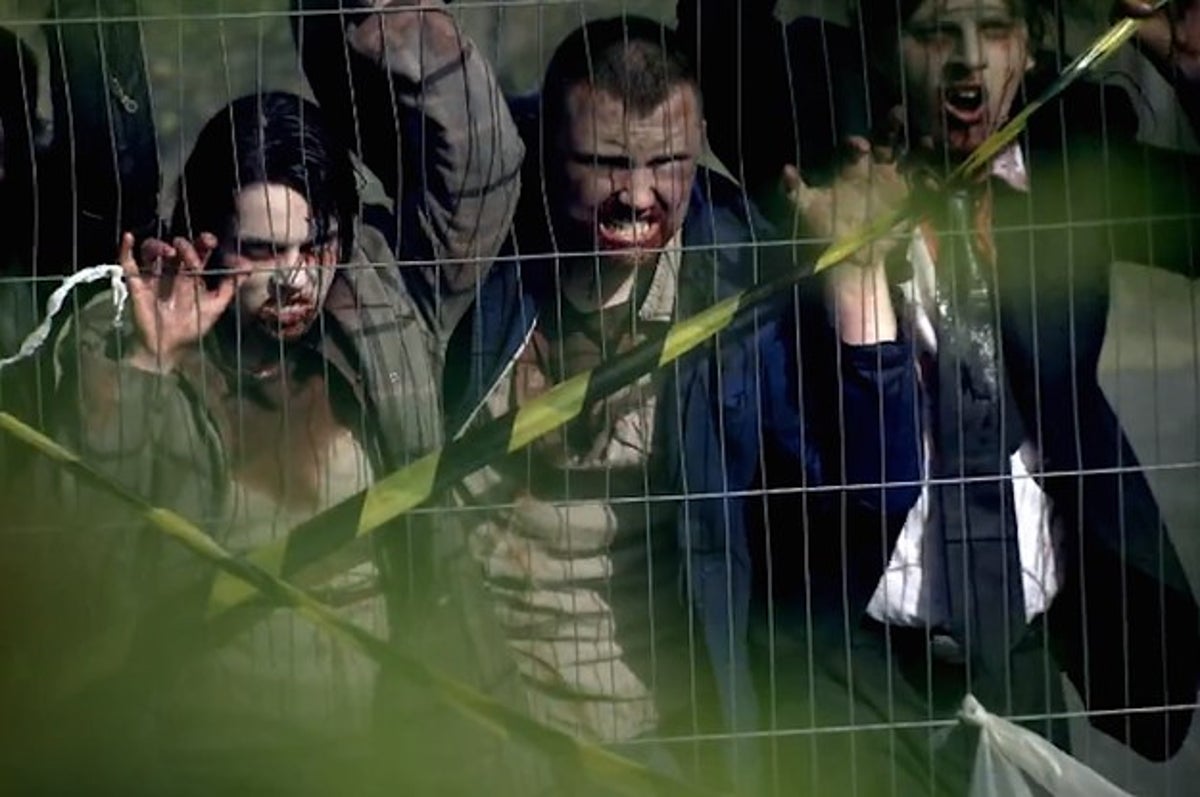
Oh, how we laughed when BBC3 came out with I Survived A Zombie Apocalypse, the post-apocalyptic reality show founded on the flimsy premise that the introduction of 5G Wi-Fi would cause a global viral outbreak which would bring the world to a standstill. Imagine.
The Contestant of ISAZA had to ‘survive’ in an abandoned shopping centre besieged by the undead, charged with securing food, shelter and supplies and completing ‘army’ tasks, many of which carried the risk of infection and ‘death’ (i.e. elimination), which usually involved said contestant being dragged away melodramatically by a jobbing actor with red contact lenses and shredded clothing.
I Survived a Zombie Apocalypse is a weird watch, in that it’s an action / horror narrative drama disguised as a high-concept elimination show, constantly straddling the line between reality, fiction and tongue-in-cheek comedy in a mishmash that almost comes off but never quite gels effectively. Part of the issue is the show’s obviously restricted budget which can often give the impression of George A. Romero’s Dawn Of The Dead being re-enacted in Scotland by an Amdram troupe, especially when you realise that the number of zombies occasionally seen tearing at the gates of the compound is barely enough to fill out a decent 5-a-side squad. It puts one in mind of the ‘battles’ in historical documentaries where the Battle of Agincourt is depicted as two middle-aged men with chainmail in a field facing up against a bloke from catering and a spare boom operator with lots of shaky-cam added to disguise the paltry numbers.
7. The Littlest Groom
“The Littlest Groom is not exploitative. The Littlest Groom is not exploitative. The Littlest Groom is not exploitative” is what I imagine went on in the minds of the execs who commissioned one of the Fox network’s more eye-catching The Bachelor knock-offs. The miniseries followed dwarf Glen Foster as he looked for love among a prospective group of similarly restricted suitors, giving the world a chance to see that those with different physical attributes shouldn’t be barred from the chance to find love.
Doubt that the show was in any way designed to empower persons of diminished stature, however, did start to creep in when the infamous ‘twist’, the introduction of three beautiful women of ‘average’ height as competing prospects for Glen to choose from, came into play.
The Littlest Groom may have set itself up, as all dating shows do, as being about the quest to find love, but unsurprisingly ending up being a quite astoundingly exploitative mess which has only grown more shocking with hindsight. Everything about it has the strange air of a Medieval circus, so that one keeps expecting to see contestants dressed in ye-olde jester’s hats tumbling for the amusement of presenter Dani Behr, while bears are baited on chains and a background crew member plays the lute.
You can almost hear the sniggering of the crew or see the camera wobble as its operator tries to hide his amusement when the contestants are forced into the latest activity designed to cruelly highlight their distinct lack of height, from golf (not mini) to line dancing. Clearly, the producers were one step away from just dangling dollar bills at varying heights just out of the contestants’ reach, or forcing them to dance in little sailor suits as the Munchkins song from the Wizard of Oz played in the background.
8. Pete’s P.A.
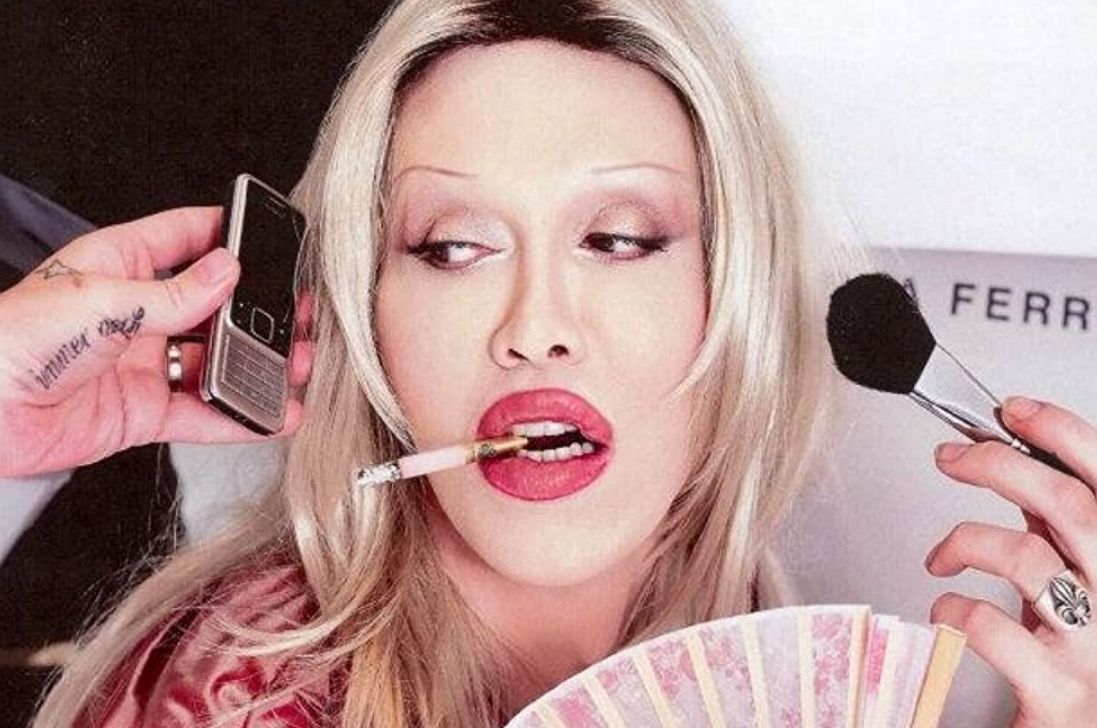
Arbitrary positional talent searches were a popular elimination show format in the early-to-mid 2000s, from nexus of business incompetence The Apprentice, to BBC3’s utterly bland barber challenge Hair. Instead of hiring in the usual way of reading carefully submitted CVs and interviewing potential candidates one by one in a sombre and intelligent fashion, producers realised that this doesn’t necessarily make for great television.
Pete’s P.A involved 80s pop star Pete Burns hunting for a personal assistant ‘to help organize his life and his wedding to long-term partner Michael Simpson’. There are infinitesimal conceptual issues with the show, the primary one being convincing the audience that Pete Burns is still the sort of hot property who needs an assistant to manage a supposedly hectic schedule of bookings and gig appearances. How much does it take to sort out a spot-on Big Brother? The great paradox of the show was that the only work Pete seemed to need organising was the filming of Pete’s P.A. itself.
A particular highlight had the wannabee-aides rooting around in mounds of rubbish to find a small tube of lipstick which the musician had accidently misplaced. It’s an odd set-up, as a man who has the time and money to hire others to dig through his own swathes of smouldering garbage presumably has sufficient funds to finance a trip to the nearest Boots to grab another stick of Revlon, although looking at poor old Burns’ distinctive visage, he likely needed about five tubes just to do one lip.
9. Splash!
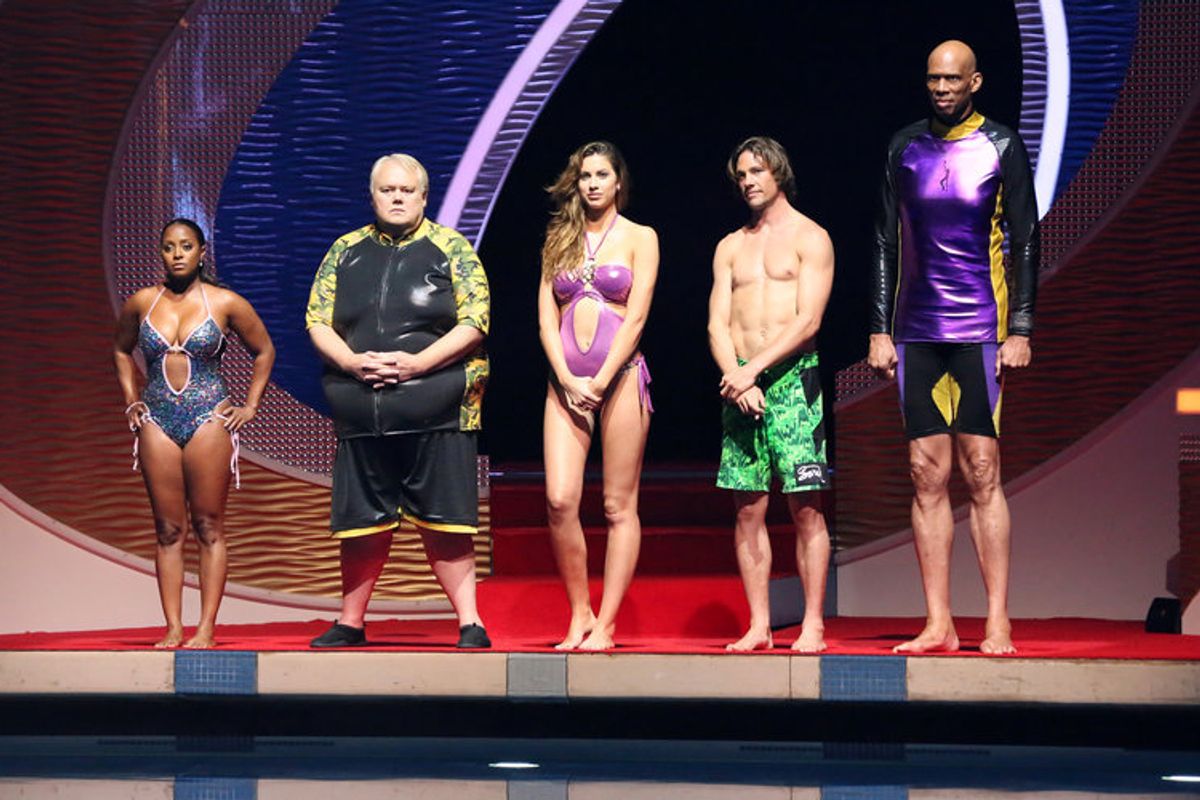
Have you ever wondered what it would be like to see D-list celebrities competing to find out who can fall off a plank into an Olympic swimming pool on national TV? Of course you haven’t, but that didn’t stop ITV from commissioning two whole series of the imported Dutch elimination show for the enjoyment of literally dozens of viewers.
I don’t know why diving was zeroed in on as the Olympic sport of choice. Fencing, boxing, or perhaps Greco-Roman wrestling might have been more visceral and interesting picks, although one suspects ITV commissioned the show as an excuse to see Britain’s favourite diving automaton and discarded anime protagonist Tom Daley wandering around in his speedos for the titillation of bored housewives who had run out of episodes of The Vampire Diaries to watch.
The real issue with Splash!, apart from the fact that it has the least merited punctuation mark in the history of television titles, is that diving isn’t a sport with a large mainstream appeal, and most dives only last a few seconds, so the producers are forced to resort to padding with tiresome filler and lacklustre VT montages. Added to that the fact that most of the divers couldn’t perform even the most basic manoeuvres, and you started to wonder whether this was just an opportunity to see what the likes of Dom Joly and Paul Ross looked like in swimwear. Cor.
10. There’s Something About Miriam
Digging out There’s Something About Miriam feels a bit like opening an old wound, such was the controversy the show generated and the general bad taste it left in the collective mouth of the viewing public.
If you’re not aware of it, There’s Something… was the classic Bachelor-style elimination show format predicated on six men wooing 21-year-old Mexican model Miriam Rivera, a charming singleton whose secret, revealed only at the very climax of proceedings, was that she was transgender.
There’s little to be gained in picking over the sorry bones of the show’s now barren carcass. Suffice to say, it was exploitative of practically everyone involved, predicated on mocking both transgender people and its keen contestants in equal measure. From the deception of the show’s principal participants, their derision of Miriam when the truth was revealed, and the ambiguous attitude the show held for Ms. Rivera herself, it’s fair to say that practically no-one came out of things looking good.
READ MORE: The Bachelorette Season 15 Finale & Why We Love Reality TV Like It
Some of the coverage you find on Cultured Vultures contains affiliate links, which provide us with small commissions based on purchases made from visiting our site.

